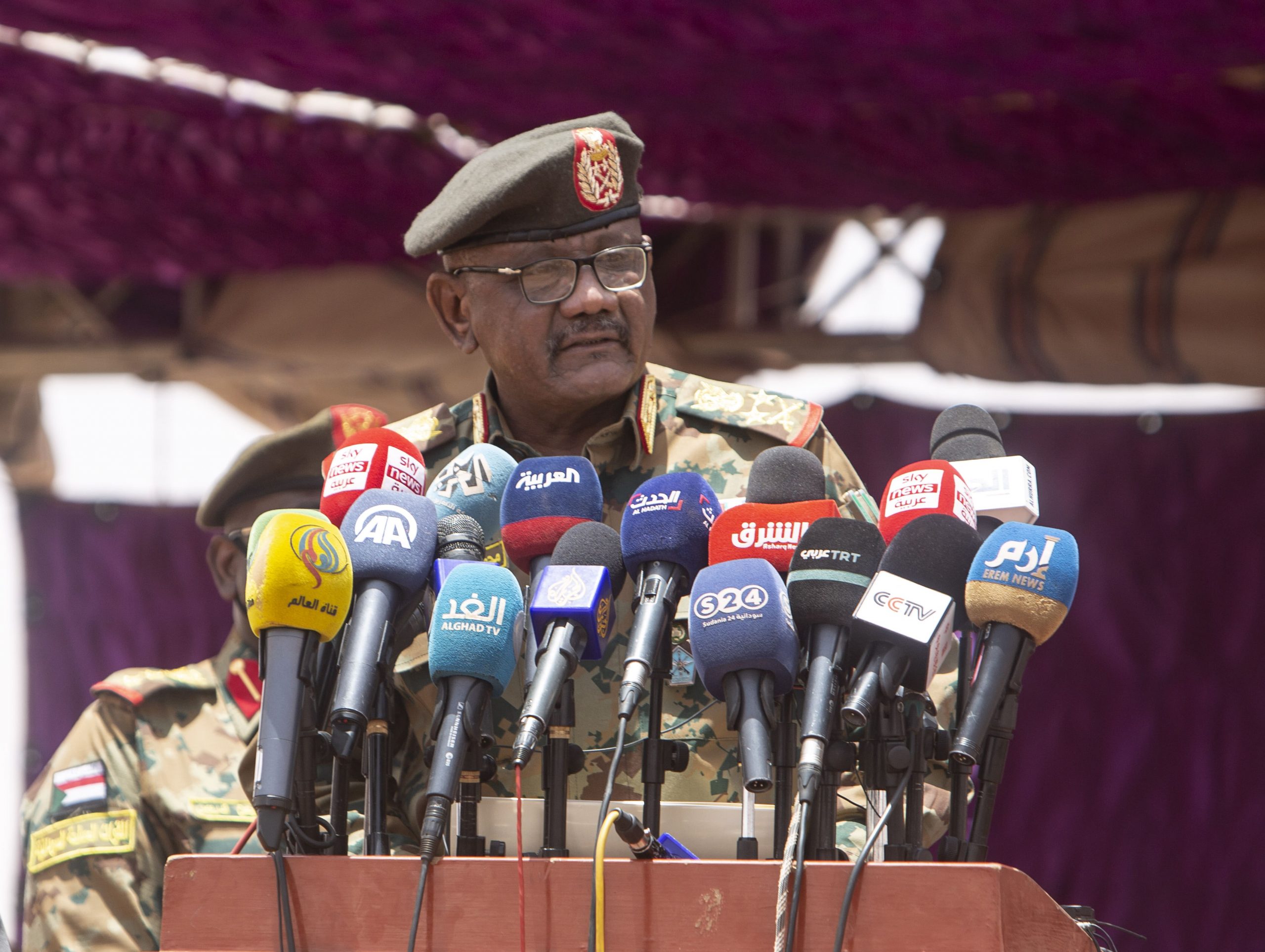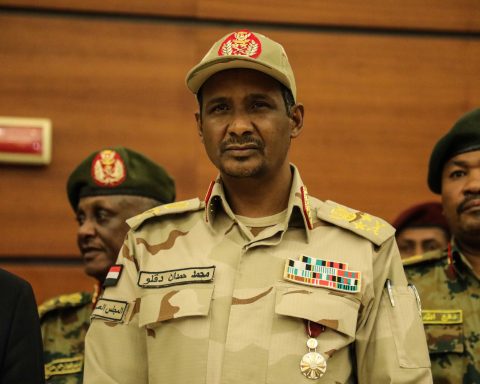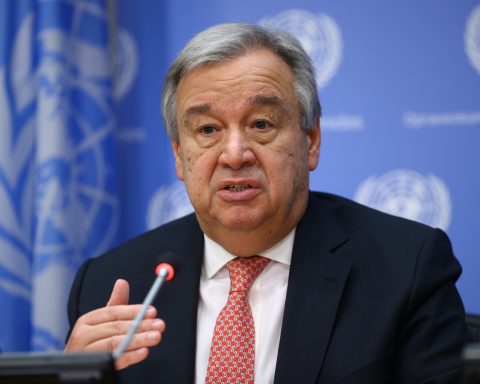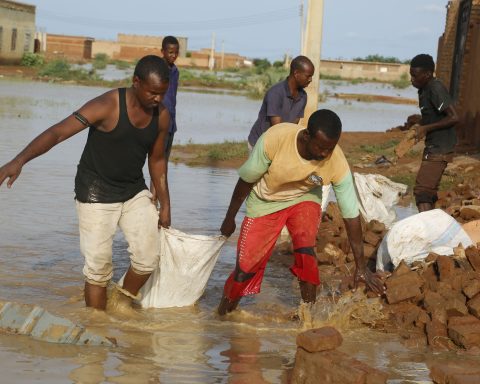The Sudanese Chief of Staff, Mohamed Osman al-Hussein, paid a visit to the Western Sudan border area to offer Eid al-Adha prayers alongside the troops stationed there to repel attacks by Ethiopian militiamen. Al-Hussein informed local villagers after the holiday prayer in Wad Koli that he was glad to celebrate Eid al-Adha with them and to see them reclaim their land after 25 years of occupation by Ethiopian troops.
“This territory will not be desecrated again,” he vowed, adding that “your sons in the armed forces will remain until it regains full security and stability.” Following the prayer, Al-Hussein toured the Wad Koli and Wad Arood districts, seeing the bridges and roads under construction as well as the troops stationed there.
Following months of occasional clashes with Ethiopian army-backed militiamen in 2020, the Sudanese army deployed forces in Al-Fashaga in November 2020 and ejected farmers and their militias. In response, Addis Ababa claimed the border territory and requested boundary demarcation talks. Sudan dismissed the claim, citing boundary demarcation agreements signed between the two countries in 1902 and 1975 as evidence.
Since November, the Sudanese army has increased troop deployment and initiated many projects in the border area to provide roads, bridges, and basic amenities.
The EU Envoy for the Horn of Africa, Annette Weber, met with Ethiopian Foreign Minister Demeke Mekonnen on Tuesday to address the boundary dispute. According to a statement released by the Ethiopian Foreign Ministry, Mekonnen asked the visiting EU official to condemn Sudanese “violence” during the meeting. According to the statement, he also asked the EU to “demand a restoration to the status quo before November 2020 to prepare the path for a peaceful resolution of the border problem.”














